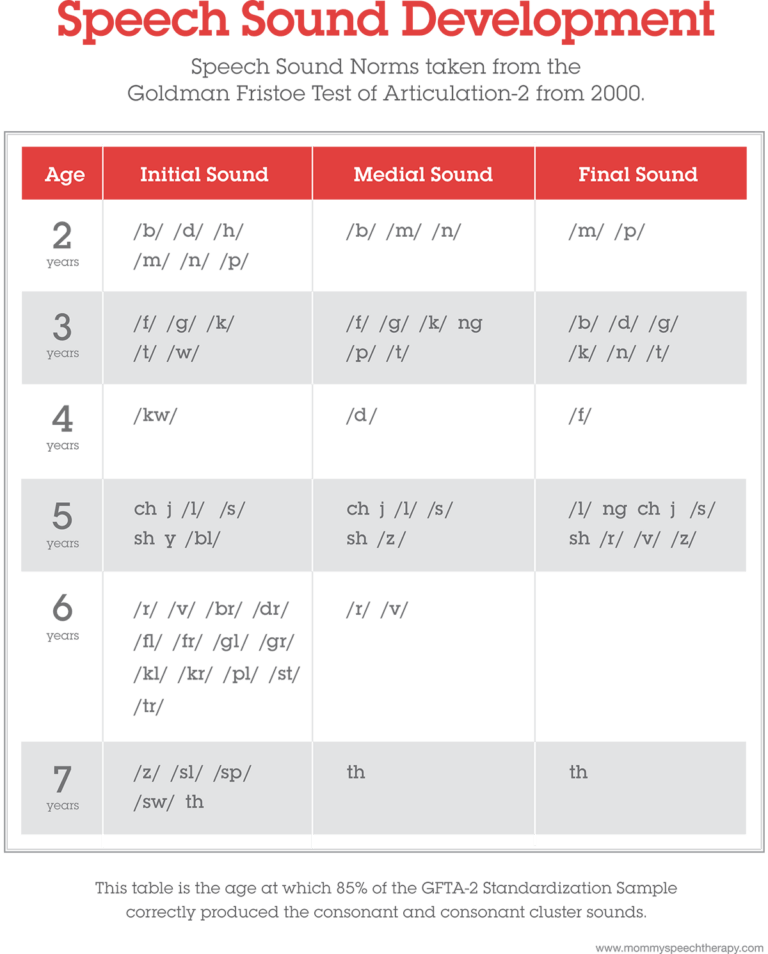After all, it is considered normal for children to have trouble articulating certain speech sounds at a young age.
But while articulation disorders like having a lisp or saying “wabbit” for rabbit might’ve once seemed kind of cute, they can actually have some negative implications for older children.
Why is it so important for older children to commit to articulation therapy? And…how can you keep your child motivated to work on improving their articulation? Let’s explore!
Speech Sound Disorders
If your child has trouble articulating specific sounds, checking the milestones for speech sound development is a good place to start.
When a child isn’t able to articulate the sounds that are expected at their age, they may be diagnosed by a Speech Therapist as having an Articulation Disorder. As you can see, a child should be able to articulate all sounds correctly by age 8.
So, what about the 10% of children who have a developmental speech sound disorder (also known as an Articulation Disorder)?
Implications of Articulation Disorders
Articulation disorders can put a child at risk for social, emotional, and academic challenges.
According to research, speech impairments are associated with:
- Lowered academic expectations
- Trouble with initiating and maintaining relationships with peers
- Higher levels of parental anxiety
- Increased risk for literacy difficulties
- More difficulties in the workplace
Motivation Boosters in Articulation Therapy
#1: Let’s Be Honest.
Help your child come up with a list of goals to work towards as their articulation improves. Does your child want to feel more comfortable making new friends? Starting a conversation with classmates? Raising their hand in class? Writing these down can help your child stay motivated to work hard in order to reach their own goals.
#2: Build off of Interests
For most older children, that means not reading a list of words or naming flashcards with words that include a sound they’re working on.
Whether your child is into Legos, football, science experiments, or anything else, build off of what interests them in order to keep their attention. Share your child’s hobbies and interests with their speech therapist, so they can incorporate related activities into sessions.
#3: Play Games!
According to research, games involving technology that target therapy goals can be potentially effective tools for “promoting knowledge and training various skills.”
Additional Resources
TherapyWorks offers speech therapy, occupational and physical therapy both in person (in Illinois, Michigan, and Ohio) and through teletherapy (nationwide). If you would like to learn more, or discuss your child’s specific needs, please don’t hesitate to reach out to TherapyWorks!









